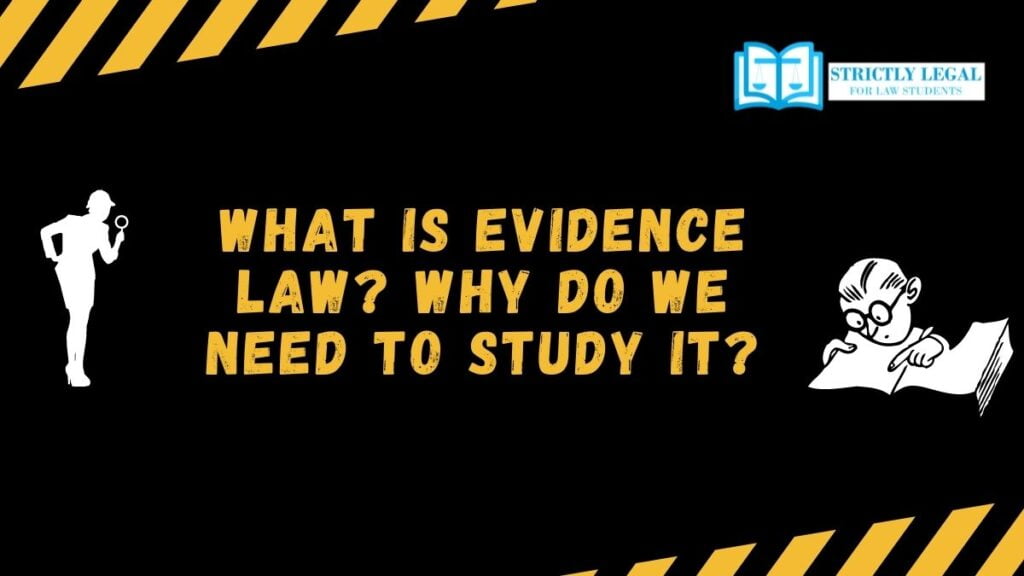In this article, we will discuss the actual meaning and usage of evidence that were used in the court proceedings.
Table of Contents
Meaning of Evidence
Evidence is a matter or a declaration that needs to be present before the court to be able to verify the truth of any allegation under investigation. It is derived from the Latin word “evidentia”, meaning “obvious to the eye or mind”.
As the judicial rulings are founded on actual truths and facts, The courts’ first obligation is to conduct free and fair procedures and thoroughly examine all the objects and documents, which are then deemed to be evidence. Given that evidence can take the shape of papers, photos, audio, video clips, or any other material things.
What do you mean by evidence law?
Evidence is a term generally used to describe anything that governs the use of testimony (e.g., oral or written statements such as an affidavit) and exhibits (e.g., physical objects) or other documentary material which is admissible (i.e., allowed to be considered by the trier of fact, such as jury) in a judicial or administrative proceeding (e.g., a court of law) presented to a court or jury that tends to prove or disprove an alleged fact. It is either direct evidence (which tends to prove a fact without inference) or circumstantial evidence (which tends to prove a fact by demonstrating another fact from which the first may be inferred), or it may just be objectionable evidence. It can also be real, material, or demonstrative evidence, but cannot be character evidence.
What are Rational and irrational sources of Evidence? How evidence can be obtained?
The word evidence has both legal as well as technical aspects, while the court evidence has always been a human issue rather than a technical one. evidence can be obtained legally or illegally and can be collected from anywhere.
Concept of Evidence in English Law
Concept of Evidence in Indian Law
Indian Evidence Act, 1872
Section 144 of Indian Evidence Act, 1872
Section 145 of Indian Evidence Act, 1872
Kinds of evidence that needs to be brought in courts
Well, in the common law of nations, civil law requires a quality of important facts while the criminal proceedings require proof beyond a reasonable doubt.
What is Direct and Indirect Evidence?
Difference between Primary and Secondary evidences?
What are the differences between oral and hearsay evidence?
What is written evidence and what are the powers of written evidence?
What is circumstantial evidence?
Conclusion
Frequently Asked Questions
Reference
You can check out these book for Evidence Law:Best Evidence book for Law Students

Trying to learn the art of advocacy.
Practicing at the Calcutta High Court and in its vicinity.





